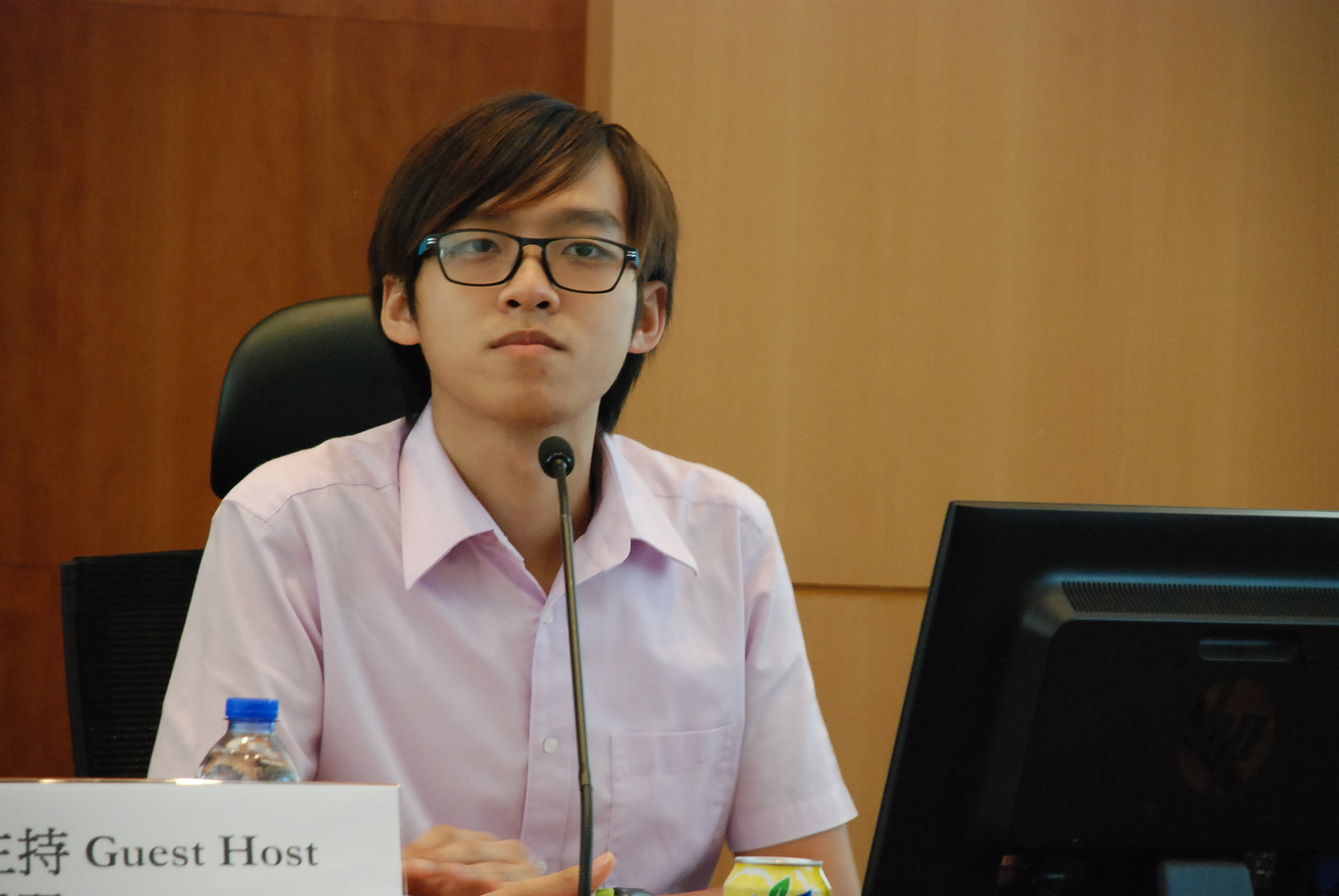Tommy Cheung, one of the student leaders in the 2014 pro-democracy Occupy protests, has been disqualified from running as a candidate for the Chief Executive Election Committee on the grounds that he did not have “substantial connection” to the higher education sub-sector.
Hong Kong’s leader is elected by the committee, which consists of 1,200 members representing four sectors, under which 38 sub-sectors represent various trades, professions, social services groups and district organisations.

The government announced that it received 1,553 nominations for the committee on Tuesday. Many came from pro-democracy advocates hoping to expand their influence in next year’s leadership election.
Cheung entered the race with six other students under the alliance “Students United 2017.” Only Cheung was notified by the Electoral Affairs Commission on Thursday that he had been disqualified due to a lack of “substantial connection” to the sub-sector he intended to represent.
Cheung, a Chinese University student, was a senate member of the school last year. However, the Commission said the leadership position did not provide enough evidence of Cheung’s connection with the higher education sub-sector. The other six students who were allowed to join the race are current senate or council members.
The Commission said it arrived at the decision after studying Cheung’s documents and consulting the Department of Justice and an advisory body.
The Electoral Affairs Commission’s guidelines provide that to be a nominee, one must either “satisfy the returning officer” that they have a “substantial connection” with the relevant sub-sector, or be registered as a voter for the sub-sector.
Cheung told HKFP that the “substantial connection” requirement appears to be subjective.

“Outside members of the governing council arguably have much less to do with the university compared to students, yet they are allowed to stand as candidates,” he said. “There are no objective criteria for what constitutes a ‘substantial’ connection.”
He said the incident showed that returning officers have “a lot of power” over local elections. “They can decide who can stand as candidates and who cannot,” said Cheung.
Students United 2017 said Thursday that students are the most important actors in higher education, and should be considered to have a substantial connection to the sector regardless of whether they hold any leadership positions.
It criticised the government’s assessment for being unreasonable. “This also shows how ridiculous small circle elections are. All small circle elections should be abolished,” it said.
On Wednesday, six nominees from the 26-member Progressive Engineering group were also disqualified from joining the race in the engineering sub-sector for not having a substantial connection with the industry. They are four workers, a union officer and a company board member. The remaining 20 allowed to run are mostly engineers, but also includes an academic, a CEO, and company board members.

The group said it was “shocked” by the news because there is “ample objective evidence” showing that the disqualified members have close ties with the engineering sub-sector.
“The entire nomination system is a black box affair – there is zero transparency, and the disqualification of six members’ right to run lacks a legal basis,” it said.
Meanwhile, in the social welfare sub-sector, a dozen elderly and ethnic minority beneficiaries are allowed to stand as candidates.
Education sector lawmaker Ip Kin-yuen told HK01 that the Electoral Affairs Commission’s eligibility requirements for different sub-sectors appear “absurd and arbitrary.” He expressed hope that the legislature will push for an amendment to the current regulation to standardise the criteria.
The elections for the Election Committee are scheduled for December 11. The chief executive election takes place on March 26 next year.
